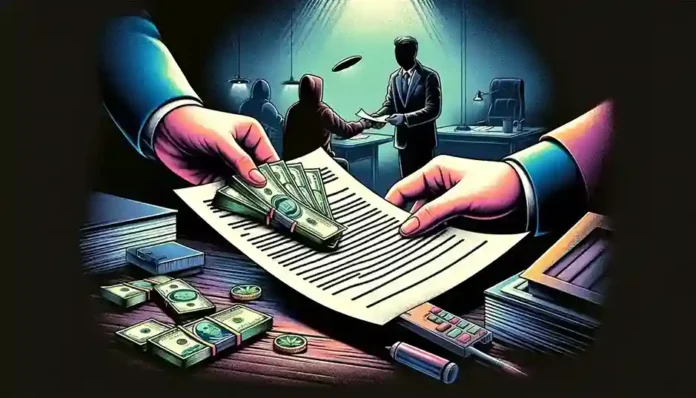CBI Uncovers NEET-UG Exam Paper Leak: 144 Candidates Implicated
In a significant development, the Central Bureau of Investigation (CBI) has unearthed a major scandal involving the leaking of the NEET-UG examination papers. The agency has identified 144 candidates who allegedly paid for access to these leaked and solved question papers just hours before they were to appear for the examination, which is crucial for admissions into medical colleges.
The CBI, in its third charge sheet filed last week, has named Pankaj Kumar as a key figure in this conspiracy. Kumar, who allegedly stole the examination papers from Oasis School in Hazaribagh, Jharkhand, colluded with the school’s principal, Ahsanul Haque, and vice-principal, Md Imtiyaz Alam. The crime took place on May 5, the day of the NEET-UG 2024 examination, after the trunks containing the papers arrived at the school from the bank vault at around 8 am.
Haque, serving as the city coordinator for Hazaribagh, and Alam, designated as the center superintendent by the National Testing Agency (NTA), were pivotal in facilitating this breach. According to a CBI spokesperson, the charge sheet, which spans over 5,500 pages and includes the testimonies of 298 witnesses, 290 documents, and 45 material objects, provides a comprehensive account of the modus operandi of the gang responsible for the leak.
The spokesperson detailed that Haque and Alam allowed Kumar, a civil engineer who graduated in 2017 from the National Institute of Technology, Jamshedpur, to access the room where the trunks were kept. Kumar, using a sophisticated toolkit, tampered with the hinges of the trunk containing the question papers. He removed one of the papers and photographed all its pages. After completing this task, he resealed the trunk and left the control room, ensuring that his actions went unnoticed.
Following his exit from the school premises, Kumar handed over the photographed question paper to his accomplice, Surendra Kumar Sharma, who was stationed at the Raj Guest House in Hazaribagh. It was here that nine medical students were tasked with solving these question papers. The solved papers were then scanned and electronically transmitted to various locations. The recipients, part of different gangs, printed the solved papers and distributed them to the aspirants who had paid substantial amounts for this illicit service.
This scandal has sent shockwaves through the academic and administrative circles, raising serious concerns about the integrity of the examination process. The NEET-UG, being one of the most critical examinations for aspiring medical students in India, demands a stringent and foolproof mechanism to prevent such breaches. The involvement of senior officials like the principal and vice-principal of a school underscores the need for rigorous oversight and accountability in the administration of such exams.
The CBI’s investigation into this case has been meticulous, involving extensive gathering of evidence and testimonies. The identification of 144 candidates who benefited from the leak suggests a wide network of individuals willing to compromise ethical standards for a competitive edge. This not only undermines the efforts of genuine candidates but also poses a significant challenge to the authorities in ensuring fair play in educational assessments.
The revelation of this scam has prompted calls for a comprehensive review of the security measures surrounding the handling and distribution of examination papers. There is an urgent need for implementing advanced technologies and protocols that can detect and prevent unauthorized access to examination materials. Additionally, the role of the NTA and other supervisory bodies in monitoring the conduct of examinations needs to be reinforced to avert similar incidents in the future.
In the wake of this scandal, the educational community is grappling with the implications of such breaches on the credibility of the examination system. For students who invest years of hard work and dedication, the assurance of a fair evaluation process is paramount. The authorities must now undertake measures to restore confidence in the system and ensure that such lapses do not recur.
This case also highlights the broader issue of corruption and malpractices in the education sector. It serves as a stark reminder of the lengths to which some individuals are willing to go to secure an advantage, thereby compromising the integrity of the entire system. The CBI’s efforts in bringing the culprits to justice are commendable, but it is equally important to address the root causes that enable such corruption.
Moving forward, it is essential for educational institutions, regulatory bodies, and law enforcement agencies to collaborate closely to establish a robust framework that safeguards the sanctity of examinations. This includes not only stringent security measures but also fostering a culture of integrity and ethical behavior among all stakeholders. Only through such comprehensive efforts can we ensure that the aspirations of millions of students are protected and the standards of our educational system are upheld.

